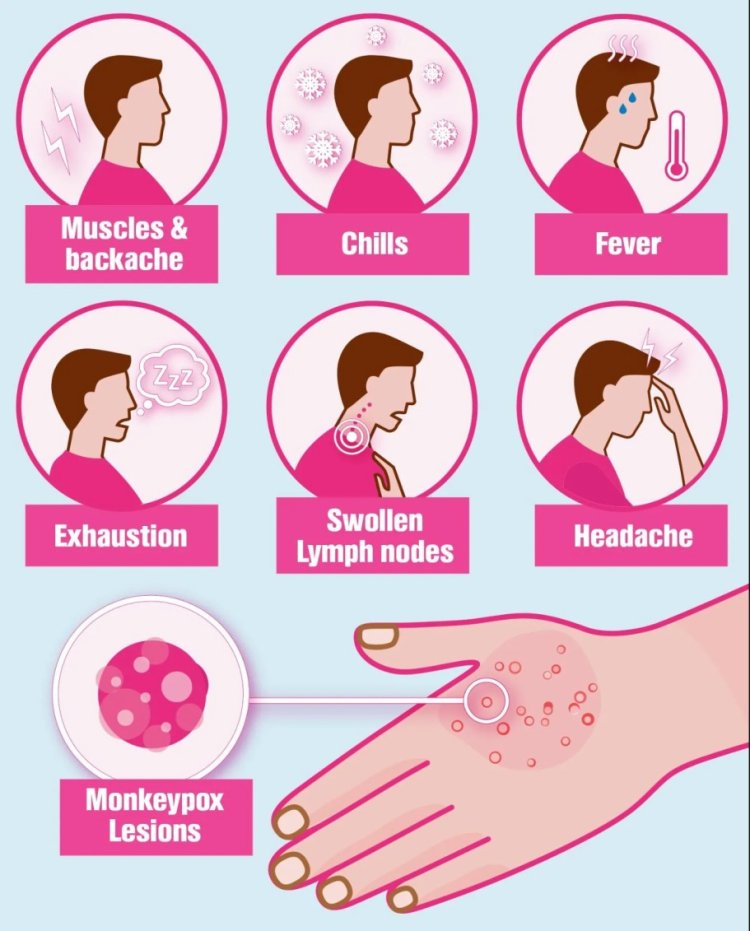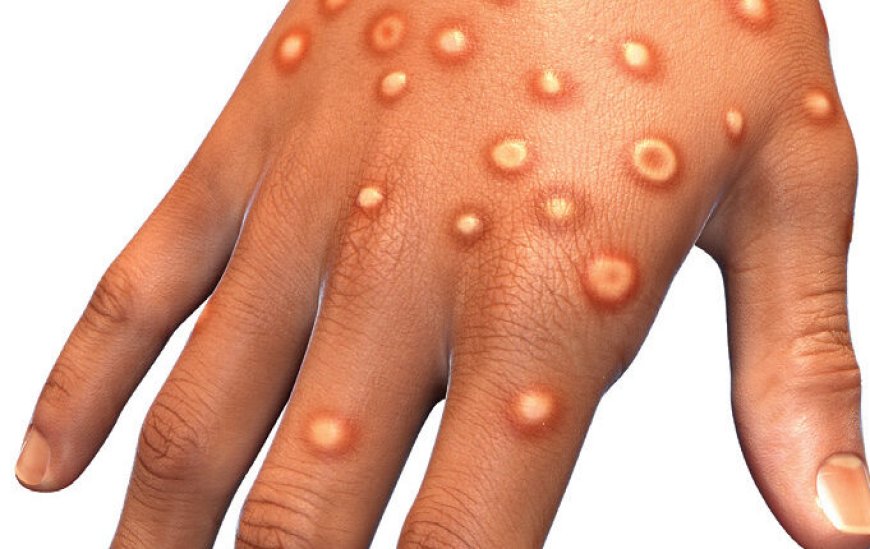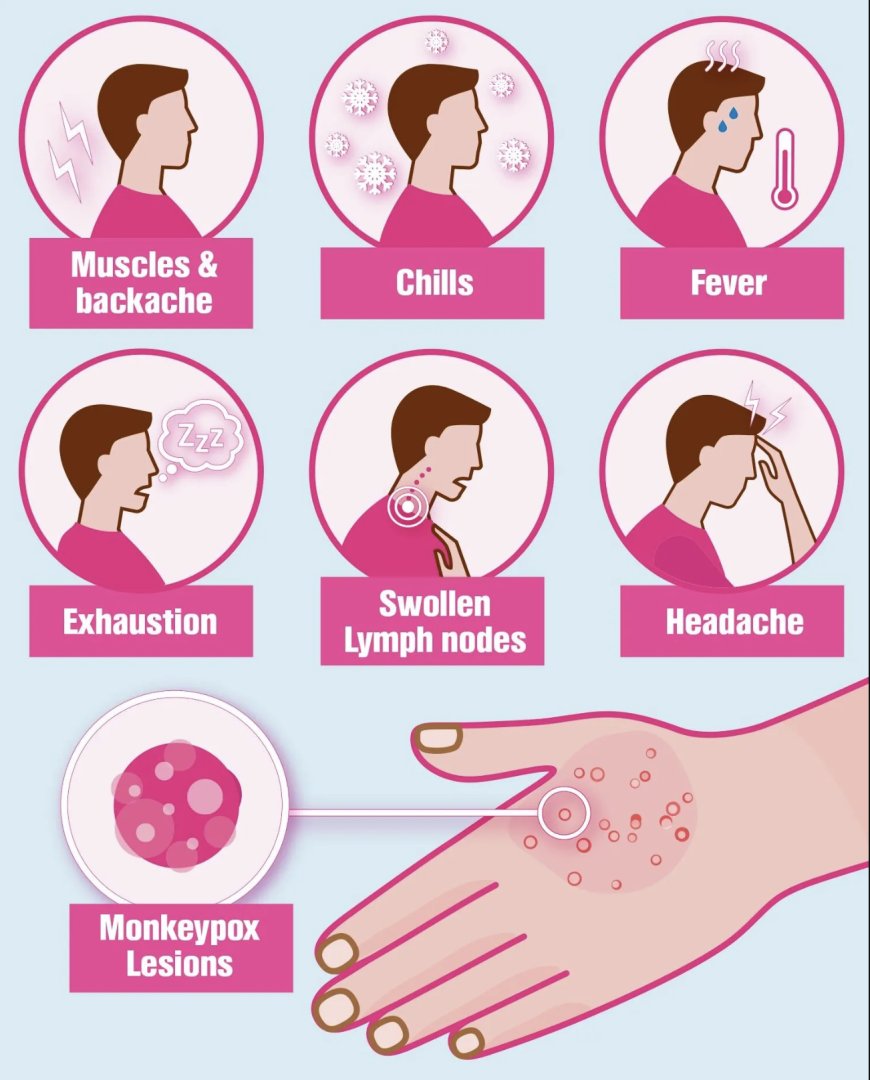What is Monkeypox ? It's Symptoms, Causes, and Prevention Tips of mpox ?
Everything about monkeypox (mpox) with it's symptoms, causes, and essential prevention tips to protect yourself and others from this viral disease.
Mpox is another name for Monkeypox. It is a viral illness that has gained worldwide recognition recently because of outbreaks in different regions across the globe. Although it has typically been limited to certain areas in Africa. It is crucial to grasp the symptoms, causes, and prevention strategies of monkeypox now that it has spread to multiple nations.
What is Monkeypox ?
Mpox, also known as Monkeypox, is a virus that can be transmitted between animals and humans. This indicates that it can spread from animals to humans. It is similar to the smallpox virus but usually results in less severe symptoms (fever, tiredness, loss of sense of smell). Even though monkeypox / mpox is not as easily spread as smallpox, it can still result in severe health issues, particularly in vulnerable communities.

Symptoms of Monkeypox
Monkeypox / mpox symptoms may be seen anywhere from 5 to 25 days following exposure. The early symptoms frequently resemble those of the flu, such as:
Fever: An abrupt increase in body temperature is one of the initial signs of mpox.
Headache: Intense headaches can be present along with the fever.
Muscle aches: You can see small tiny bubbles like aches throughout body when you have mpox. You also experience muscle pain and feeling generally weak is frequent.
Fatigue: When we have mpox we do not like to eat a food. We can experience tiredness and exhaustion.
Within 1 to 3 days after the onset of fever, a rash may develop, typically starting on the face and then spreading to other parts of the body. This rash progresses through several stages:
Macules: You can notice small Flat, discolored spots on the skin when we have mpox.
Papules: You can notice Raised bumps that can be painful.
Vesicles: Those pimple-like things are filled with some kind of fluid.
Pustules: Pus-filled lesions that eventually crust over and fall off.
Typically, the complete duration of the sickness spans from two to four weeks. Sometimes, mpox symptoms may be mild, but in other cases, they can be severe and potentially fatal.
Reasons for Monkeypox
Monkeypox / mpox is mainly spread by coming into direct contact with infected animals like rodents or primates. Nevertheless, transmission between individuals is also possible. The virus is transmitted via:
Close Contact: Coming into direct contact with an infected person's skin, especially if they have a rash, can lead to the virus spreading.
Respiratory droplets transmission: Respiratory droplets can be transmitted through prolonged face-to-face contact.
Contract with contaminated item: Being in contact with contaminated items such as bedding, clothing, or utensils used by an infected individual can also lead to infection.
While Monkeypox can impact individuals of all backgrounds, certain groups such as healthcare workers, close contacts of infected individuals, and those with weakened immune systems are at a heightened risk.
Tips on how to prevent Monkeypox.
Taking various preventive measures is important in the prevention of monkeypox / mpox , especially in regions where the virus is endemic. Here are some important guidelines to minimize the chances of getting mpox:
Avoid Contact with Infected Animals : Refrain from handling animals that could be carriers of the virus, such as rodents or primates.
Practice Good Hygiene : Wash your hands regularly with soap and water, especially after coming into contact with potentially contaminated surfaces or animals.
Use Personal Protective Equipment (PPE): Healthcare workers and caregivers should use gloves, masks, and other protective gear when caring for someone with monkeypox.
Isolate Infected Individuals: If someone in your household or community is infected, they should be isolated from others to prevent the spread of the virus.
Vaccination: The smallpox vaccine has been shown to be effective in preventing monkeypox. If you are at high risk, consider getting vaccinated.
Avoid Contact with Contaminated Objects: Do not share personal items like clothing, bedding, or utensils with someone who has monkeypox.
Stay Informed: Keep up-to-date with news and health advisories regarding monkeypox outbreaks, especially if you are in or traveling to an affected area.
Conclusion
It is important to be concern now about monkeypox (mpox) as WHO has declared a medical emergency with mpox. By knowing the signs, comprehending the reasons, and following the prevention advice, you can lower your chances of catching this virus. While monkeypox is not as sufficient to cause death as smallpox, it is still a significant issue for public health, especially in areas experiencing outbreaks. Frequently be updated, maintain good hygiene, and implement preventative measures to safeguard yourself and your community against monkeypox. If you see any symptoms about monkeypox / mpox we recommend you to visit doctor and seek guidance from experts
What's Your Reaction?









































